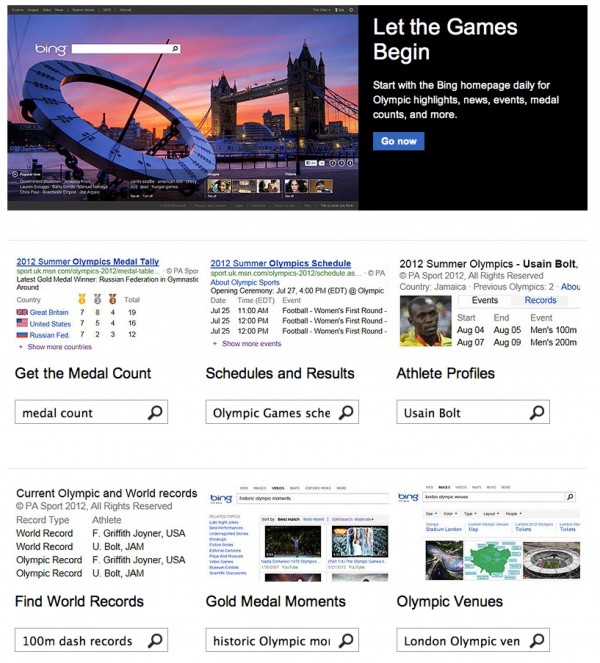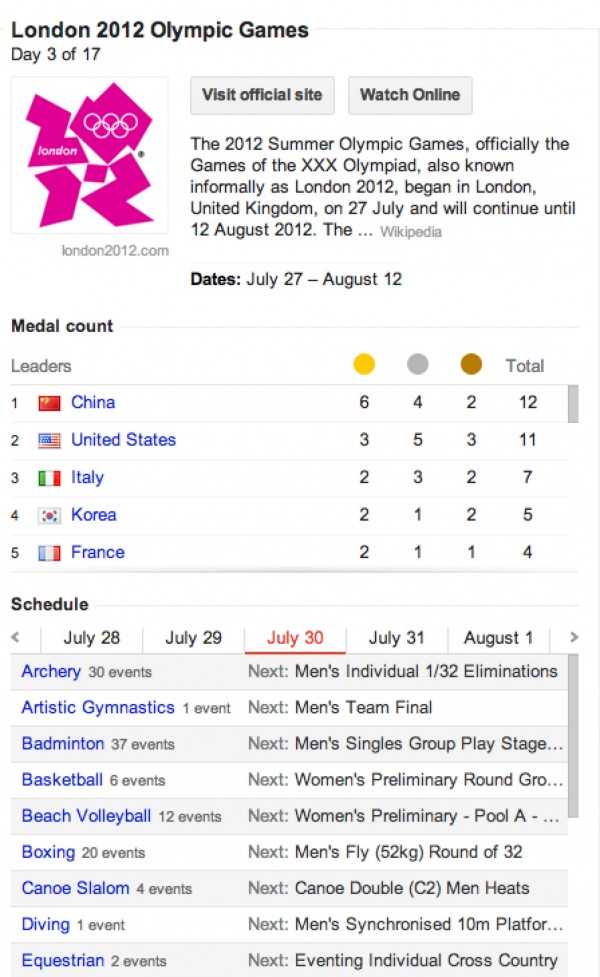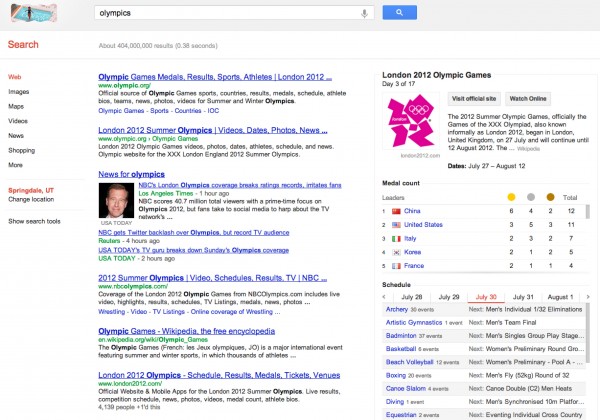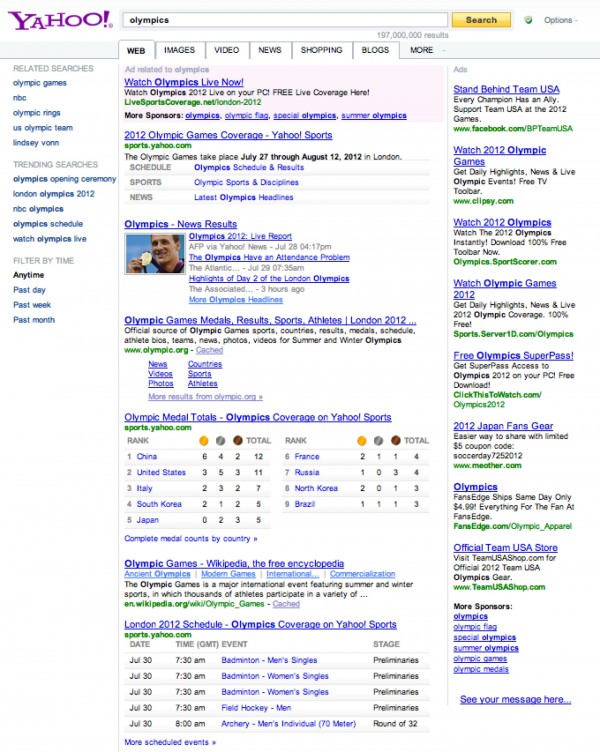Want to know the how various countries are doing in the London 2012 Olympics? For finding out using a major search engine, I give the gold to Yahoo, with Google narrowly missing to earn silver and Bing getting bronze mainly by virtue of being third in a three contestant race.
Ready, Set, Search!
Checking for results today on my phone, I was pretty impressed with Google’s Knowledge Graph box that came up at the top of my results, showing the medals won by various countries. Kazakhstan was ranked seventh? Cool to discover! Plus, I was able to quickly learn this was for winning gold in road cycling and weight-lifting.
But how about Bing? Could it match Google’s performance? My phone brought no similar results back. I decided a more formal test was in order, a competition including Google, Yahoo and Bing. In a search for “olympics,” how well did they show me a medal count and get me to more detailed information about results?
Bing Knows, But Only If You Ask Correctly
It was close, but I have to give the gold to Yahoo. To explain why, let me start with Bing, which took the bronze or third place. In a search for olympics on Bing, I got this:
Bing shows a box in the top right corner, a promotion saying that “Bing has it all” when it comes to the Olympics. But having it all doesn’t extend to actually showing any Olympic results.
If you click on the box, you get to a page explaining how for certain searches, Bing will trigger special Olympics-related answers:

It’s nice to know that if you enter the right terms like “medal count” or “olympic games schedule,” Bing will bring you back answers (Bing also blogged tips about this recently).
But lots of people searching for “olympics” will certainly be interested in results. Why not show those in response for that, rather than only if they use the exact words? After all, Google does.
Google Delivers Medal Count Results
Here’s what you get for a search on olympics at Google:
On the right side, you get an at-a-glance guide to the top five countries by medal count. You can scroll inside the box to see all the other countries that have won awards. Just below the box is a handy schedule:

Click on any of the countries, and you learn more about what exactly they’ve won:

It’s all nicely done. Should you search for “medal count,” you also get results — and directly under the search box, rather than off to the side.
Yahoo Delivers Even More Medal Results
How can Yahoo beat that? I gave Yahoo the gold for making it easier to see the count for more countries in response to your initial search and to see all the countries ranked against each other, at-a-glance.
Here a search for olympics on Yahoo:
Whereas Google only shows you the top five countries in the medal count by default (and Bing only three by default), Yahoo shows nine. There’s room for 10, but for some reason, it cuts off at nine.
Yahoo gets a further edge because unlike Google, there’s a way to click and and get a count for all the winners, such as using the “Complete medal counts by country” link below the results or the main link above them:

Do that, and you get taken to a page at Yahoo listing all the countries in the Olympics with ranked by medal count.
With Google, I’ve looked and looked, but there’s no way to see a full list of counts, unless you want to scroll directly within its Knowledge Graph box and see only five countries shown at the same time. That’s a pain.
Like Google, click on any country in Yahoo’s medal count results, and you get more details about what exactly that country won for. Yahoo also shows a schedule of events directly in the results, which is nice.
Ranking By Golds; Ranking By All Medals
One thing to note. Google ranks countries not according to their total medal count but by those that have won the most gold medals. That’s the same way that the official London 2012 Olympics site ranks things by default on its medal count page.
That page also allows you to resort the rankings by total medal count, gold, silver and bronze combined. When you do that, you get the same rankings that both Bing and Yahoo use.
Source: Jul 30, 2012 at 12:46am ET by Danny Sullivan (SearchEngineLand.com)



